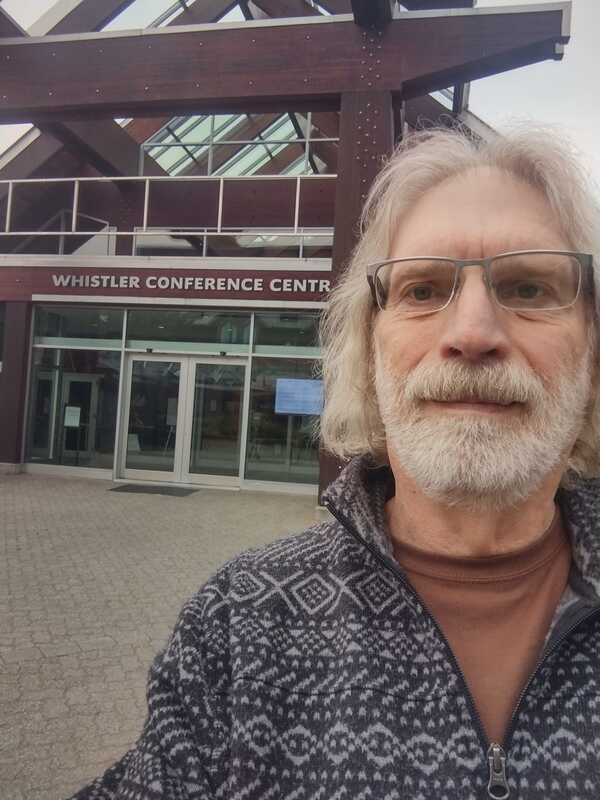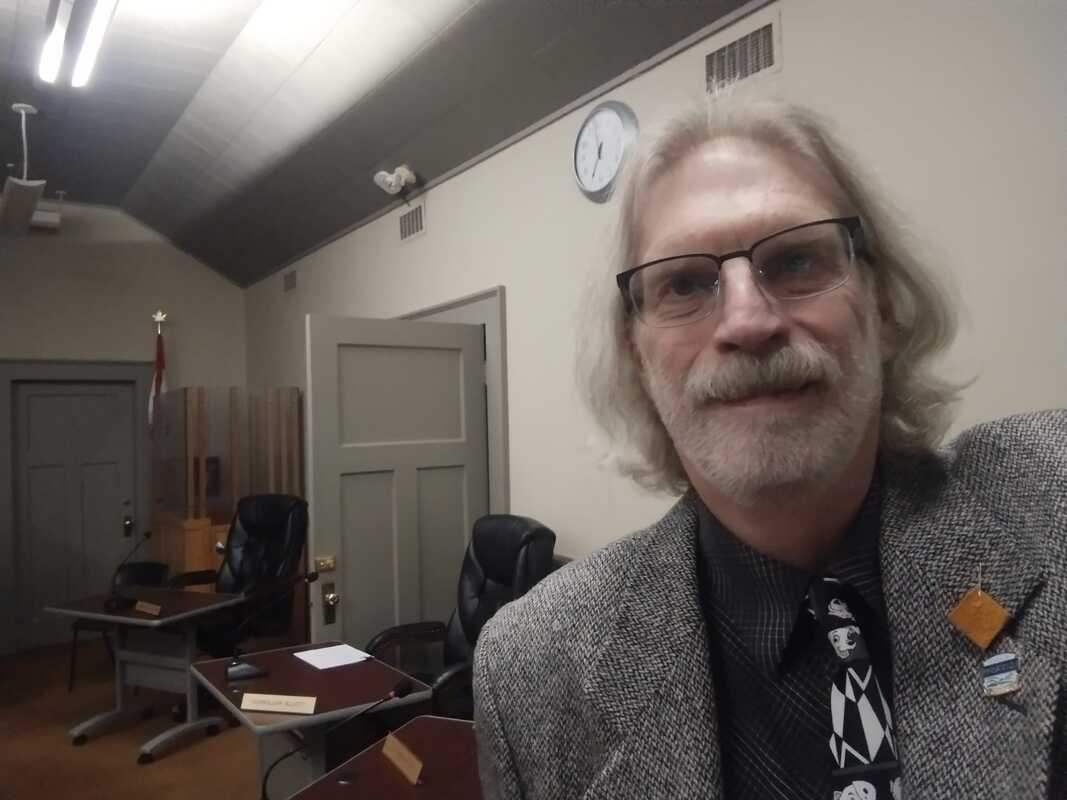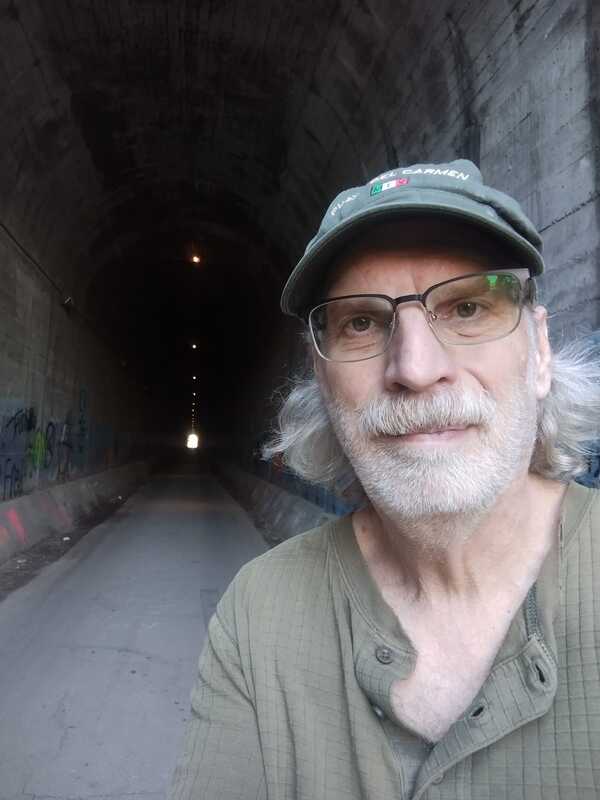|
Let’s get this out of the way right now. No one intends to get elected to Town Council for fame and fortune. That was most certainly not my goal when I tossed my hat in the ring in 1999 and again in 2018 when I finally did get elected.
I wanted to get involved for various other reasons. Primarily, I thought it would be great to be part of a team that pushed Princeton into the future. I never really thought of myself as a single voice around the council table. Instead, I view myself as a part of the machine that drives the community forward. Sure, I have opinions, attitudes, points of view, disagreements, etc. I have voted against some motions made during meetings. I think that’s all a normal part of the process. But Don’t We Make A Bundle Spending Taxpayer's Money? Absolutely not. I receive remuneration monthly. It totals $1,037.63 (gross) with $42.52 going to CPP leaving $995.11 (net) each month. Sure, I have an expense account that covers convention fees. As for extras, I only claim for my mileage and not the permitted food allowance simply because I figure I’m going to be eating anyway, so I’ll cover those costs. Regardless, it’s not a lot of dough and I’m okay with that. What Others Are Making In Local Government I did a quick survey of a few other communities for comparison. Councillors at the Town of Osoyoos earn (rounding up/down) $1,585 per month. In Penticton, Councillors earn $2,225 monthly. In Merritt, it’s $1,500 per month for a Councillor. So, as you can see, fame and fortune are not part of the incentive to seek election. Speaking of Fame… I can’t forget to explain that (as you can imagine) I sometimes feel like I have a target on my back. I spend numerous hours monthly on Town Council business. If it’s not preparing for a meeting or attending one, I’m at one of several committee meetings that are part of my council appointments. Then I try to attend some public functions. It doesn’t always work out as I’m also juggling my home-based business and the commitments that come from that. Oh, and there’s the social media activity. Usually, I get a few private messages when I’m not ‘tagged’ in posts. I get stopped downtown while conducting personal business to discuss issues. The odd time someone will show up at my door. I get emails. I get phone calls. I’m expected to have all the answers, which is impossible. I’m also fortunate in that I probably get fewer interruptions than anyone else on Town Council. It Comes With The Territory By the way, I don’t consider any of the contact people make with me as interruptions. To be honest with you, I quite enjoy the interaction and meeting some people I don't already know. I try to make myself accessible so I can be reached. I figure that's the least I can do as I am considered a public official. I used to have my social media feeds locked down tight but decided that just shuts me off of the people I’m supposed to represent at the council table. But I do think the community is getting a pretty good deal from me, for just $995.11 (net) a month. If you think the same thing, please remember to vote for me, George Elliott, on October 15. Thank you!
0 Comments
The math says so. The success rate of incumbents in Canadian municipal elections is higher than that in any other democratic country. The percentage is also greater than that in both provincial and federal elections. This is according to University of Calgary associate professor Jack Lucas who is part of UC’s department of political science.
“It’s often the case that above 80 percent - and sometimes above 90 percent - of the incumbents who choose to seek re-election in Canadian cities are successfully elected to office,” Lucas says. He adds, “There's an enormous success rate.” There Are A Few Reasons Why This Happens Lucas claims that re-election success comes from a few factors. They include:
Let’s dig a bit deeper into these reasons. Name recognition makes sense as residents become used to hearing that Councillor George Elliott did this or said that. The name sticks in their minds over the four-year term and they remember it when they see it on a ballot. As for the prizefighter hypothesis, Lucas says that essentially, this is the same thing as a good, strong football team that keeps winning games. Some candidates just have those qualities that resonate with voters. Maybe they are approachable. Maybe they are more visible. Whatever it is that voters take a shine to will impact that candidate's success rate. The office holder benefit is when someone is already in office, they are perceived to have an advantage. Lucas explains it this way: “Voters assume, for example, ‘Well, this person has won in the past and so they must not be that bad. So I’ll give them the benefit of the doubt and vote for them again.'” The last point, incumbent satisfaction, is self-explanatory. If you are happy with the job the incumbents have done to this point, then why change things, right? That is incumbent satisfaction. There Are Ways To Beat Incumbent Advantage Here’s the other side of the coin. There are two main ways that incumbency advantage can be broken. That is according to Lucas and Jim Nicol. Nicol is the city clerk for the City of Regina and was the returning officer for that city’s 2020 municipal election. Both say that online information and a party system in municipal elections can derail incumbency. Lucas says that the more information a challenger has online that is easy to access, the more likely voters will consider them as possible choices. Nicol nods to the concept of a party system for local elections similar to that used in Vancouver. Lucas agrees to say that voters may be able to track what candidates say easier if they belong to a slate of candidates. Voter Turnout Also A Key Lucas adds that more research is needed on this particular topic, but he firmly believes that the incumbency advantage can be impacted by voter turnout. It makes sense. If local voters figure they don’t need to cast ballots because they assume all the incumbents will win anyway, those voters who do go to the polls will have more say as only their votes will count. If the majority of these voters do not support the incumbents because they want change, then change is likely to happen. Princeton’s Election Cycle With all of this data, it still makes me shake my head that the 2018 Municipal Election saw not a single incumbent re-elected to Princeton Town Council. Granted, there were a lot of candidates running for the five seats (18 in total). In this election, all five incumbents are running with a total of three challengers (1 mayoral candidate, and 2 councillor candidates). On October 15, 2022, remember that your vote still counts. I’d be happy if you considered casting one for me. I’m George Elliott. I’m an incumbent seeking re-election to Town Council. -- Article Source: CBC News November 2020 We call it the advance poll but it is also known as pre-poll voting or early voting. Regardless of what you call it, it all boils down to the same thing. It is a date set aside for voters to cast ballots before general election day.
Who Can Vote In The Advance Poll There was a time when the advance poll was intended for voters who were not going to be available to vote on the scheduled election day. Then it turned into an opportunity for any voter to mark their ballot. For me, quite honestly, the advance poll gives me the chance to “get it over with” early. Typically, I have my mind made up of who I’m voting for long before election day, so the early voting day permits me to vote and not be concerned about my choice(s) after that. Seriously, if I vote early, I don't get influenced by anything that I read, hear, or see after that. I'm generally happy with my choices and don't ever recall wishing I had waited because I had changed my mind. This year will be different for me as I will be out of town for most of the day of the advance poll. That means I’ll likely vote on general election day - something I have not done for several elections. There is a specific reason why advance polls exist and it has nothing to do with voters being out-of-town on election day. The whole idea behind early voting (in Canada, at least) is to increase voter participation. There are other reasons such as reducing the crowd that may gather on general election day and giving workers a chance to vote without having to schedule around their shift hours. No Excuse Voting Has Increased Numbers Since you can vote at either the advance poll or on general election day, voter turnout has increased. You don’t need an excuse to participate in the early voting opportunity, so that has brought many voters out who may otherwise feel that the polling stations could be too busy on general election day. Early Voting In Other Parts Of The World In Canada, advance polls are common in all elections ranging from federal to provincial and municipal. Typically, all a voter requires is two pieces of identification (with proof of address) to register on-site to cast a ballot. In British Columbia, advance polls are held ten days before general election day. For example, the upcoming municipal election is Saturday, October 15, 2022. Polls for Town of Princeton residents are open from 8 AM to 8 PM at the Princeton Skills Centre on Vermilion Avenue. The advance poll is Wednesday, October 5, 2022. It will run from 8 AM to 8 PM at the Princeton Skills Centre on Vermilion Avenue. In Ireland, voters on the remote coastal islands have a different advance poll opportunity. They get to cast ballots the day before general election day. The reason for this is to hopefully avoid bad weather that may delay transporting ballot boxes to the mainland. In Sweden, you don’t have to register to vote as long as you have a local address. Although voters are encouraged to vote on election day, they have the option of casting ballots anytime during the week leading up to election day. Plus, they can vote anywhere in the country. In Conclusion Early voting, or pre-poll voting, are different names for advance polls. In Princeton, the advance poll is set for Wednesday, October 5, 2022, and will be located at the Skills Centre. It will be open from 8 AM to 8 PM. You won’t be receiving a voter registration card in the mail as that just happens in provincial and federal elections in Canada. However, to vote in the upcoming local election, you must have at least two pieces of ID as that allows you to register on-site. Whether you choose to vote in the advance poll or on general election day, please remember to cast a vote for me, George Elliott. Thank you. |
Details
AuthorMy name is George Elliott. I have been in the Media Industry since 1978. I spent 23 years in Broadcasting and worked in a total of six different radio stations located in southern British Columbia Canada during my career. In 2000 I switched gears and moved into the Print Media Industry at a small town, local weekly community newspaper. In 2004 I bought the paper and operated it with my wife, Brenda until July 2016 when we closed it. I launched a freelance web content and article writing business from my home in January 2014. Archives
October 2023
|



 RSS Feed
RSS Feed
